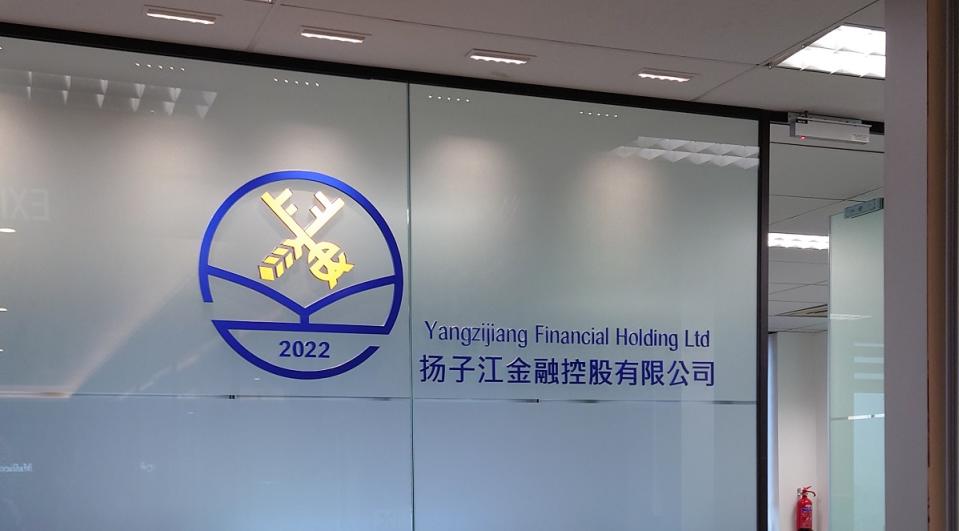YZJ Financial’s fund invests in two chemical and product tankers with a subscribed investment amount of US$32.1 mil

The fund has also entered into a co-charter agreement for eight eco MR product/chemical tankers.
Yangzijiang Financial Holding, on July 20, announced that Yangzijiang Maritime Private Equity Fund #2, the sub-fund managed by the group’s wholly-owned subsidiary, GEM Asset Management, has invested in two chemical and product tanker projects.
The two chemical and product tankers are RT Star and OM Shanghai. RT Star has a subscribed investment amount of US$19.5 million ($25.8 million) while OM Shanghai has a subscribed investment amount of US$12.64 million.
RT Star is a 26,199-DWT stainless steel chemical and product tanker that transports International Maritime Organization (IMO) 2 cargoes. DWT stands for deadweight tonnage. The fund co-owns the vessel together with a Shanghai-based tanker specialist owner/operator.
OM Shanghai is a 19,999 DWT stainless steel chemical and product tanker that also carries IMO 2 cargoes. It is co-owned by the fund along with a Singapore-based owner/operator.
Both tankers can use very low sulfur intermediate fuel oil (VLS IFO).
Handy product tankers are carriers that are between 25,000 DWT and 39,999 DWT in size and having coated cargo tanks. Handy product tankers are generally used on short and medium-haul voyages to transport either clean or dirty oil products. The smaller dimensions of Handy vessels provide significant trading flexibility in terms of the number and types of ports to which the vessels can call. The principal trade routes for Handy vessels are intra-regional trades in Europe and Asia, says the group.
In addition to the investment in the two chemical and product tanker projects, the fund has entered into a co-chartering agreement for eight eco medium range (MR) chemical and product tankers. The tankers come with an experienced international tanker charterer for a period of less than a year for each vessel.
Each tanker has a capacity of 49,999 DWT and carries IMO 2 cargoes. They both use VLS IFO according to IMO 2020 fuel requirements.
MR tankers refer to those between 40,000 DWT and 54,999 DWT in size, and have coated cargo tanks of a total cubic carrying capacity of 30,000-40,000 metric tons of gasoline and gas oil. MR tankers are utilised on short, medium and long-haul voyages transporting either clean or dirty oil products. The principal trade routes for MR vessels are intra-regional trades in Asia, the Middle East, Europe and Americas, trades from Europe to the West Atlantic, from the US Gulf to Latin America and Europe, and from the Middle East to Africa and Europe.
“The chemical and product tanker is in anticipation of an improved market for the sector in 2024 and 2025. This move is an optimistic bet on the future of the MR tanker market, which has consistently delivered good returns to owners since 2022,” says Yangzijiang Financial. The demand for crude oil tankers is expected to increase by 6.5% in 2023, while demand for product tankers is expected to grow by 9.1%. The overall demand outlook for 2024 and 2025 is also positive, with total tanker DWT demand projected to increase by 4.9%.
“The fund together with the charterer plan to secure time charters for the first-time charter trip of the charter period, and hedge against weak summer months by entering into forward freight agreements. This will aid in protecting the fund’s earnings and ensure that it benefits from the expected improvement in MR tanker charter rates,” it adds.
According to the group, the investments and co-chartering agreement are in line with the fund’s core strategies. The fund is focused on vessels in the gas sector, which includes vessels transporting liquefied natural gas, liquefied petroleum gas, liquefied ethane gas, methanol, hydrogen, ammonia and carbon dioxide. It also seeks to invest in other sectors including renewable power projects and eco-design vessels.
To date, the fund has closed a total of 12 deals and committed US$178.8 million in funding. It has also invested a sum of US$82.8 million to date.
“The group is uniquely positioned to manage the Maritime Fund, which is guided by chairman Ren Yuanlin, who has 40 years of experience in investments in the maritime sector, and is the single largest shareholder of the largest non-state-owned shipyard in China,” says Vincent Toe, CEO of Yangzijiang Financial.
“The fund aims to achieve capital appreciation, as well as generate steady income and returns through investments in a variety of maritime assets that include both debt and equity projects. It also hopes to develop as an alternative and stable source of capital for the shipping industry. Chairman Ren Yuanlin and former members of Yangzijiang Shipbuilding (Holdings) Ltd., who are now part of the group, have established a track record of generating above-market returns under Yangzijiang Shipbuilding (Holdings) Ltd. With capital commitments of US$500 million, we are well on our way to achieving our goal of transitioning Yangzijiang Financial into a full-fledged asset manager,” he adds.
Shares in Yangzijiang Financial closed flat at 33.5 cents on July 20.
See Also:
Click here to stay updated with the Latest Business & Investment News in Singapore
Yangzijiang Financial signs MOU with ADDX to distribute its capital markets products
Broker's Digest: Japan Foods Holding, Yangzijiang Financial, Marco Polo Marine
Get in-depth insights from our expert contributors, and dive into financial and economic trends

 Yahoo Finance
Yahoo Finance 